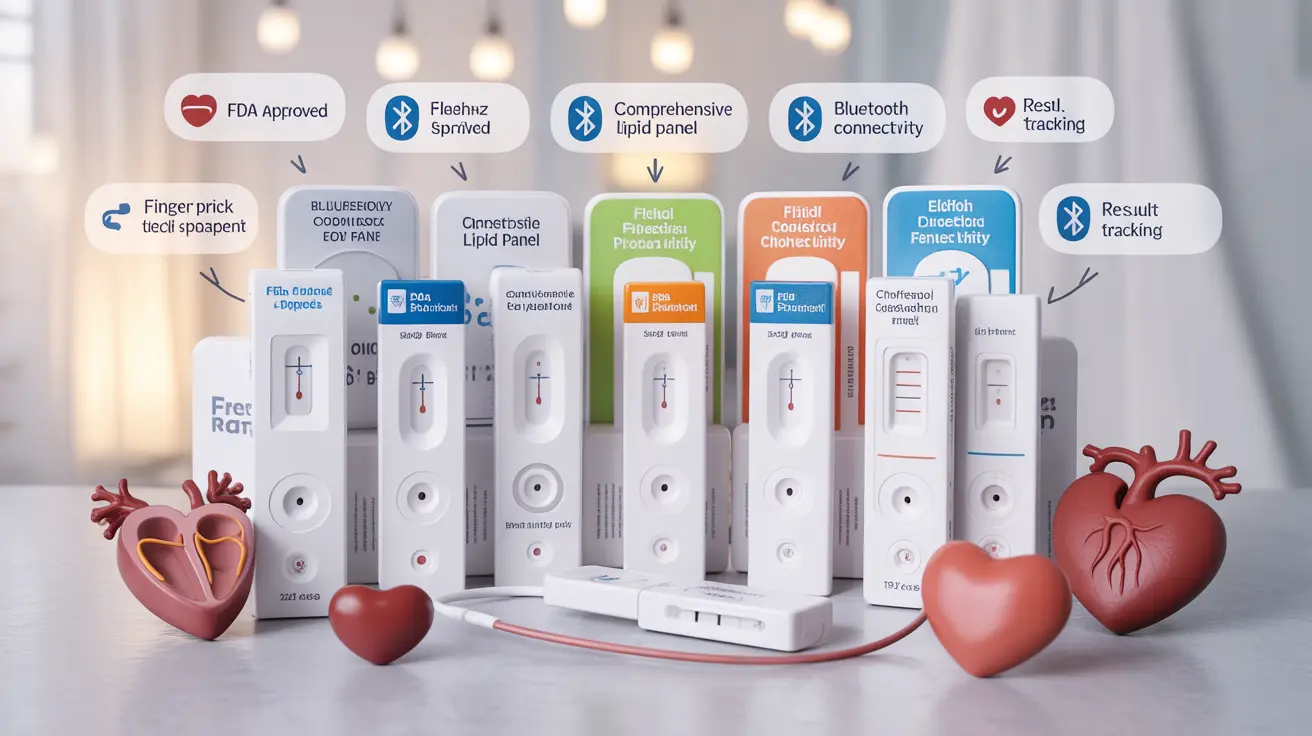Monitoring your cholesterol levels is crucial for maintaining heart health, and home cholesterol test kits have emerged as a convenient option for tracking these important numbers between doctor visits. Understanding how these tests work, their reliability, and how to choose the right one can help you make informed decisions about your health monitoring strategy.
This comprehensive guide will explore everything you need to know about home cholesterol testing, from accuracy comparisons with laboratory tests to proper usage guidelines and interpretation of results.
Understanding Home Cholesterol Test Kits
Home cholesterol test kits typically use a small blood sample obtained through a finger prick to measure various types of cholesterol in your blood. These devices have evolved significantly, with many now offering detailed lipid panel results similar to those you'd receive from a laboratory.
Types of Home Cholesterol Tests
Modern home cholesterol tests generally fall into two categories:
- Basic tests that measure only total cholesterol
- Comprehensive lipid panel tests that measure total cholesterol, HDL, LDL, and triglycerides
Selecting the Right Home Cholesterol Test Kit
When choosing a home cholesterol test kit, several key factors should influence your decision:
- FDA approval status
- Type of measurements provided (comprehensive vs. basic)
- Testing method and ease of use
- Result turnaround time
- Cost and insurance coverage
- Customer support availability
Technology and Accuracy Considerations
The most reliable home cholesterol test kits use advanced testing methods that can provide results within minutes. Many modern devices incorporate bluetooth connectivity and smartphone apps for result tracking and analysis.
Proper Test Preparation and Usage
To ensure accurate results from your home cholesterol test, proper preparation is essential:
- Fast for 8-12 hours before testing
- Avoid alcohol consumption for 24 hours prior
- Stay hydrated
- Follow all manufacturer instructions carefully
- Ensure clean hands and testing area
Understanding and Acting on Results
While home testing can provide valuable insights, it's important to understand how to interpret and act on the results:
- Keep a log of all test results
- Note any significant changes between readings
- Understand your target cholesterol levels
- Know when to seek medical attention
Frequently Asked Questions
How accurate are the best home cholesterol test kits compared to lab tests?
Home cholesterol test kits from reputable manufacturers typically achieve 95-98% accuracy compared to laboratory tests when used correctly. However, factors like proper technique and storage conditions can affect accuracy.
What should I look for when choosing the best home cholesterol test kit?
Look for FDA-approved kits that measure multiple lipid components, have clear instructions, good reviews, and reliable customer support. Consider whether you need basic or comprehensive testing capabilities and check if the manufacturer provides regular accuracy validation studies.
Which home cholesterol test kits measure not just total cholesterol but also HDL, LDL, and triglycerides?
Advanced home test kits that provide complete lipid panels are available from several manufacturers. These comprehensive tests typically cost more but provide more detailed information about your cholesterol profile, similar to laboratory tests.
Do I need to prepare in any special way (like fasting) before taking a home cholesterol test?
Yes, most home cholesterol tests require 8-12 hours of fasting before testing for accurate results, particularly for triglyceride measurements. Water consumption is allowed and encouraged during the fasting period.
Can I rely on home cholesterol test results to make medical decisions, or should I always see a doctor?
While home cholesterol tests can be valuable for monitoring trends, they should not replace professional medical oversight. Use them as a screening tool and discuss results with your healthcare provider, who can interpret them in the context of your overall health status and risk factors.
Remember that home testing is most effective when used as part of a comprehensive health monitoring strategy developed in consultation with your healthcare provider.




